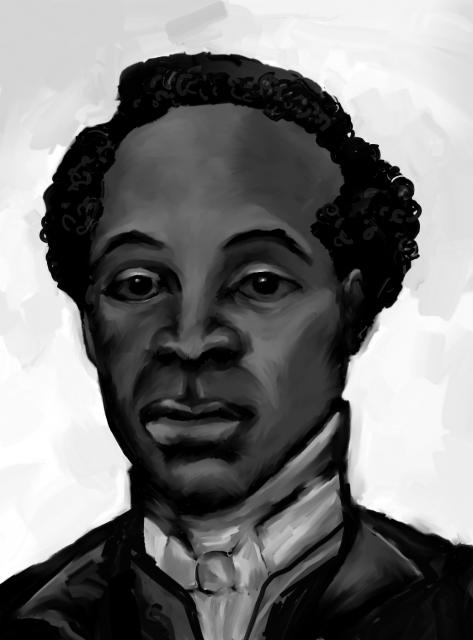Samuel Sharpe, was a slave who fought for freedom by organising a general strike in Jamaica. He was born in Jamaica in 1801 and brought up in Montego Bay. He learned to read and write and became known as an inspirational Baptist preacher who amazed people with the power of his sermons. He travelled widely throughout his parish, speaking about the injustices of slavery and pointing out that the bible said 'no man can serve two masters'. White people, he said, had no more right to hold black people in slavery, than if it were the other way round. He keenly followed the developments of the abolition movement in England by reading local and foreign papers. When he was 31 years old Sharpe organised a Rebellion in the mistaken belief that emancipation had already been granted by the British Parliament. The rebellion which started on December 1831 was timed to have maximum impact as Sharpe knew that if the ripe cane was not cut it would be ruined. He hoped the owners would pay the slaves to cut the cane, so it would not spoil. The strike was meant to be peaceful. Sharpe suggested that the slaves did not go back to work after their three day Christmas holiday. Sharpe indicated they should only fight physically for their freedom if the planters did not grant their demands. The uprising lasted 10 days and spread throughout the entire island mobilizing as many as 60,000 of Jamaica's 300,000 slave population. It resulted in the death of 186 Africans and 14 white planters or overseers. The repercussions for the rebellion were terrible. There were over 750 rebel slaves convicted, of which 138 were sentenced to death. Some were hanged, other were beheaded and their heads displayed on the plantations. Most of those who escaped the death sentence were brutally punished sometimes so harshly that they died anyway. Sam Sharpe was captured and executed in Market Square, Montego Bay on 23 May 1832. As he awaited his execution he is recorded to have said 'I would rather die upon yonder gallows than live in slavery'. His actions, however had a significant impact on the abolition of slavery. Slave resistance was costing the British government dearly. Just one week after his death, Parliament appointed a committee to consider ways of ending slavery.
 Sam Sharpe (1801- 1832) and the Baptist / Christmas Rebellion
Sam Sharpe (1801- 1832) and the Baptist / Christmas Rebellion  [ 1 ]
[ 1 ]  [
[
